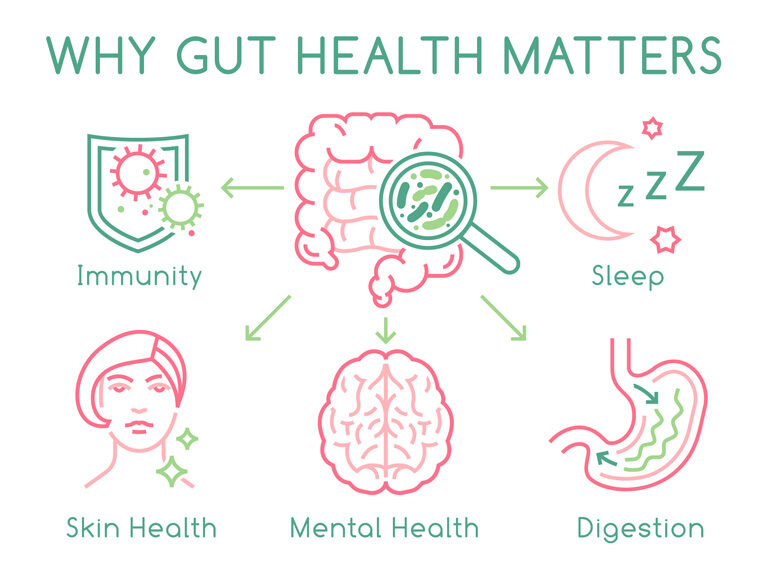
Our intestine is colonized by more bacteria than we have cells in our body. Together with fungi, spores, nucleic acids, etc., these single-celled organisms constitute the so-called microbiome. The latest findings show that this ecosystem in the intestine has a significant influence on our well-being.
In addition to numerous immune factors, colostrum also contains many oligosaccharides (small carbohydrates), which play an important role in the composition of the microbiome; they primarily serve as food for the bifidus bacteria in the large intestine.
The metabolic activity of these various bifidus bacteria determines the pH value in the colon. The healthier and more active this population is, the more acidic the microbiome becomes. This in turn prevents the colonization of pathogenic, gram-negative bacteria such as Escherichia coli.
In this sense, colostrum exerts a very positive, prebiotic influence on the microbiome. It promotes a normal, physiological balance between the intestinal bacterial strains and the intestinal immune system (GALT = Gut Associated Lymphoid Tissue). These immune-modulating properties of colostrum support healthy digestive activity and help bacteria catalyze basic metabolic cycles. For example, the intestinal microbiota is involved in the biosynthesis of amino acids, some vitamins, and the biotransformation of bile acids.
The symbiosis between the microbiota and its host involves the most diverse relationships, which are kept in balance by the immune system. This so-called homeostasis favors among other things:
- a stable, slightly acidic pH through the production of lactic acid and fatty acids
- stimulated mucosal blood flow and mucus production
- stimulated intestinal peristalsis
If these regulatory mechanisms become unbalanced, dysbiosis can develop in the intestine where the ratio of the various intestinal bacteria shifts to the disadvantage of the host and the complex, dynamic ecosystem of the microbiome is getting disrupted. For example, the use of antibiotics and pain medications can severely deplete the bacterial strains of the microbiome.
In such cases it is highly advisable to rebuild the intestinal flora through high-fiber diets, fermented foods, and appropriate nutritional supplements in order to steer the symbiosis of the intestine back into physiological, healthy channels.
For this very purpose we created two new products for you which are composed of colostrum, selected probiotic bacterial strains and the prebiotic, fiber-rich inulin:
